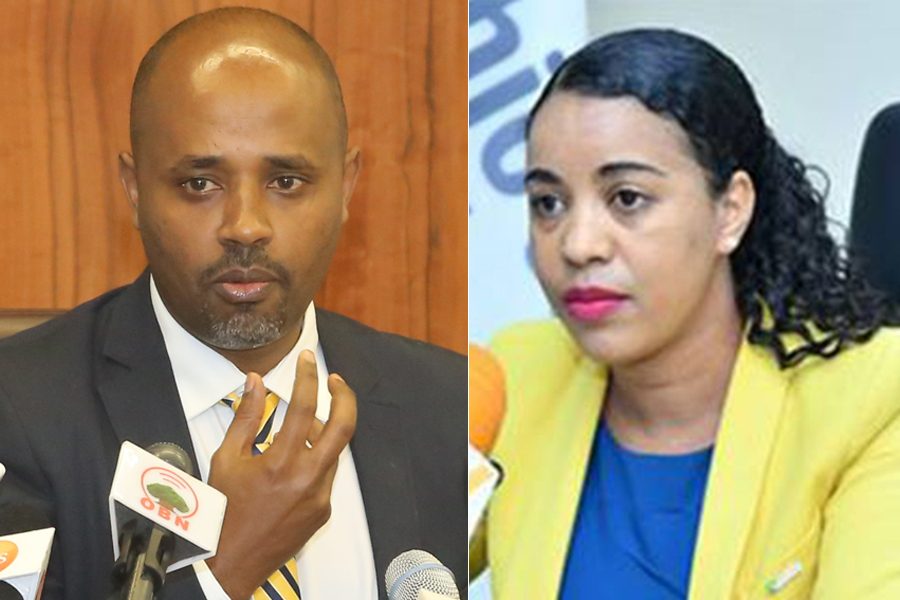
Commentaries | Jan 03,2021
Sep 20 , 2025
By Biruk Nigussie
Businesses that buy from informal suppliers should navigate two sharply different withholding tax rates: a widely known 30pc, and a little-noticed three percent for transactions logged with a Purchase Voucher. That difference can mean millions of Birr saved, or lost, every quarter, writes Biruk Nigussie (biruk.n@gmail.com), an economist by training, who studied social psychology and worked at the Ministry of Revenues for more than 10 years.
Businesses that buy goods or services from small, often informal suppliers know the rule. If a seller cannot show a renewed trade license and a Tax Identification Number (TIN), the payer should withhold 30pc of the invoice and turn it over to the tax office.
However, a quieter rule, buried in a directive issued in 2018, allows a far gentler three percent bite when the payment is recorded with a Purchase Voucher. Getting that difference wrong can drain cash, sour supplier ties, and invite audits. Understanding how the two withholding tax rates coexist has become an urgent task for accountants and managers alike. To trace the issue, start with the law governing income tax passed in 2002, which created Ethiopia's modern withholding tax system.
At the time, lawmakers required only a TIN certificate to qualify for the regular two percent supplier withholding rate; however, the law passed in 2016 continued with the same requirement, leaving the business license outside the statute. A year later, the Council of Ministers filled that gap with a regulation (410/2017), ordering suppliers to produce both documents. Anyone who failed would face the punitive 30pc withholding meant to discourage unregistered trade.
But tax officials soon saw the hard line collide with daily reality. Market stalls, rural traders and neighbourhood service providers rarely keep tidy licenses on hand, yet businesses still need to buy from them. The Ministry of Revenues answered with another directive on withholding tax (2/2018), carving out two narrow exceptions. One covers house-rent payments. The other applies when a business issues a Purchase Voucher, an internal form that records a cash outlay to an unregistered or hard-to-trace supplier. In those cases, the directive drops the withholding to three percent, even if the seller’s license is missing or expired.
Fast-forward to 2025, Parliament has amended the core law, legislating the income tax (1395/2025), folding the “renewed business license” requirement directly into the statute itself. By elevating that wording, lawmakers reinforced the 30pc penalty. However, they left the three percent Purchase Voucher break exactly where it began, in a directive that, on Ethiopia’s legal ladder, ranks below both a proclamation and a regulation.
The mismatch troubles some lawyers. They argue that a lower-level text should not override the higher law and say that Parliament could have avoided the conflict by explicitly authorising the tax authority to grant exceptions. For now, taxpayers should live with the patchwork. Tax advisors close to the Ministry believe that the directive is still valid and binding, noting that officials continue to accept the three percent filings supported by Purchase Vouchers during audits.
Companies that default to the 30pc rate out of caution often find themselves explaining over-deductions to unhappy vendors, especially small vendors and street-corner mechanics for whom every Birr counts. Reimbursing the extra 27pc, meanwhile, can be a paperwork headache stretching over months.
There is a ceiling, however, that many businesses overlook. Registration for Value Added Tax (VAT) becomes obligatory once a person’s annual turnover tops two million Birr, according to a directive (1104/2025) governing VAT. The moment suppliers cross that line, the law treats them as formal taxpayers who must issue proper invoices and keep books. From that point on, any Purchase Voucher prepared loses its privileged status, and payers who continue to withhold only three percent risk being assessed for the shortfall plus penalties.
Accountants, therefore, track cumulative purchases from each informal supplier to stay below the two-million-Birr threshold. Several large retailers now run automated alerts. When total payments to a particular vendor or handicraft maker approach the limit, the system blocks any new Purchase Voucher until the vendor provides a valid VAT registration or the finance team switches to the 30pc rate. Those controls help avoid surprises at year-end when tax auditors reconcile supplier lists against the Ministry’s registry.
The hierarchy puzzle may yet be fixed. Legal drafters inside the Ministry of Finance have floated the idea of inserting a blanket clause into the proclamation, authorising the Ministry to set reduced withholding rates “for specific categories of transactions” by directive. Such language would align the texts and shield the Purchase Voucher rule from future challenges. Until that day, businesses are better off navigating a layered rulebook. A proclamation that demands a renewed license, a regulation that repeats the demand, and a directive that, quietly but firmly, says three percent is sufficient when a Purchase Voucher is in play.
Complying with that balance is more than an exercise in statutory interpretation. At 30pc, withholding turns a modest purchase into a notable cash-flow hit for small suppliers; at three percent, it becomes a manageable prepayment of income tax. Companies that master the distinction protect relationships, cut costs and reduce the risk of assessments. Those who ignore it may pay twice, once to the vendor and again to the revenue office.
In a tax environment where every percentage point matters, the Purchase Voucher rule stands out as a reminder that the fine print can save real money. Businesses that read the directives as closely as the proclamations will find themselves better prepared for the next visit from an auditor, and better positioned to keep their suppliers and their own ledgers in good standing.
PUBLISHED ON
Sep 20,2025 [ VOL
26 , NO
1325]


Commentaries | Jan 03,2021

Life Matters | Jun 27,2020

Radar | May 18,2024

Radar | Oct 23,2018

Fortune News | Feb 05,2020

Photo Gallery | 173993 Views | May 06,2019

Photo Gallery | 164223 Views | Apr 26,2019

Photo Gallery | 154319 Views | Oct 06,2021

My Opinion | 136609 Views | Aug 14,2021
Editorial | Oct 11,2025

Dec 22 , 2024 . By TIZITA SHEWAFERAW
Charged with transforming colossal state-owned enterprises into modern and competitiv...

Aug 18 , 2024 . By AKSAH ITALO
Although predictable Yonas Zerihun's job in the ride-hailing service is not immune to...

Jul 28 , 2024 . By TIZITA SHEWAFERAW
Unhabitual, perhaps too many, Samuel Gebreyohannes, 38, used to occasionally enjoy a couple of beers at breakfast. However, he recently swit...

Jul 13 , 2024 . By AKSAH ITALO
Investors who rely on tractors, trucks, and field vehicles for commuting, transporting commodities, and f...

Oct 11 , 2025
Ladislas Farago, a roving Associated Press (AP) correspondent, arrived in Ethiopia in...

Oct 4 , 2025
Eyob Tekalegn (PhD) had been in the Governor's chair for only weeks when, on Septembe...

Sep 27 , 2025
Four years into an experiment with “shock therapy” in education, the national moo...

Sep 20 , 2025
Getachew Reda's return to the national stage was always going to stir attention. Once...

Oct 12 , 2025
Tomato prices in Addis Abeba have surged to unprecedented levels, with retail stands charging between 85 Br and 140 Br a kilo, nearly triple...

Oct 12 , 2025 . By BEZAWIT HULUAGER
A sweeping change in the vehicle licensing system has tilted the scales in favour of electric vehicle (EV...

Oct 12 , 2025 . By NAHOM AYELE
A simmering dispute between the legal profession and the federal government is nearing a breaking point,...

Oct 12 , 2025 . By NAHOM AYELE
A violent storm that ripped through the flower belt of Bishoftu (Debreziet), 45Km east of the capital, in...